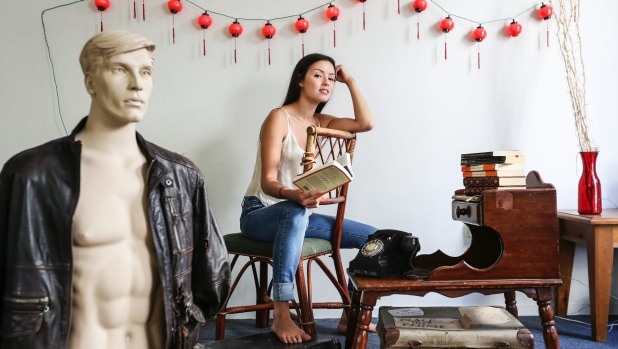Directing Like Sex
Interview with director Chye-Ling Huang
|
What is the show about and why is it relevant?
With any script I think the way that I approach it is by thinking about what we are saying, what story we’re telling, and what the workable question is. Questions like what are we teaching young people about sex? How can we enable youth to deal with the nuances of social and sexual interactions? Why does the socio-sexual hierarchy form in groups, and how can we navigate and break it? Like Sex uses stereotypes to throw up discussion about how stereotypes operate and influence our lives. A good question is - how can we destigmatise our current cultural ideologies around sex? We’re looking at how we approach sex, culturally in New Zealand. Our beliefs around it, our fears, the taboos. We’re looking at that and deconstructing it to look at what is useful in that dialogue, and what is harmful. And what have you discovered about our cultural ideologies around sex? New Zealand attitudes around sex can be really closed. As a nation we’re strangely conservative. Very don’t ask don’t tell. There’s a ‘man alone’ culture that exists. But New Zealanders have a lot of sex. Teenagers have a lot of sex. And we have sex young as well, around the age of 13 and 14 in some cases. But it’s not talked about openly and the resources around sex education are quite limited. |
There’s not a lot of discussion about non-hetero sex, non cis-gender sex. The conversations around consent are really bad. We mostly get taught fear tactics. Don’t get pregnant. Don’t get an STI. Abstain or use a condom. But we don’t explore real situations and questions, like ‘if my boyfriend really wants to have sex, and I don’t want to, can I say no? Cos we’re in a partnership.’ Or ‘If I’m having sex with a guy and something happens, can I tell my parents about it when they don’t know I’m not a virgin?’ So we’re exploring destigmatisation, so those conversations can happen.
|
How have your own personal views and experiences informed your direction?
The message of the show isn’t that sex is bad and dangerous and let’s try and come out of it alive. It just acknowledges that shit's fucked up, but sex is amazing, and we should be aiming to have healthy discourse around it so we can make it safely incredible. I guess being older you realise sex is amazing and wonderful, and beautiful and great. I think it’s a shame this is lost a lot of the time. I’m super sex positive. What does Sex positive mean to you? There are a couple of things said about sex – it’s scary, let’s abstain is one. Let’s be fearful of it so we don’t do it and we don’t get into trouble. Being sex positive is the opposite of that. It’s acknowledging that sex is a healthy and vital part of humans lives. And that people should be able to enjoy sex in whatever way that they want to. It’s a healthy and normal and interesting part of someone’s life. We shouldn’t shy away from exploring it. I think that’s what it means to be sex positive. To be an advocate to good, healthy, sex. |
"...shit's fucked up, but sex is amazing." |
Tell us more about how you’ve portrayed the act of sex in the show, and why.
We’re using theatrical language to present sex in a way that is non-literal, and more abstract. Who knows what will make it into the show on opening night, but at the moment we’re trying things. One example we’re working with is using two torches, shadow play, and choreographed dance to portray sex in one scene. We’re wanting to capture the feeling of sex, and the sexual dynamic without being literal about it. We’re trying to open a window to that surreal space that you go into when you’re having sex with someone. It’s other worldly. It steps you out of the mundanity of life. And it’s just 100 times more interesting to watch that, than a literal sex scene. Quite intimate, beautiful, slow, soft, and interesting and connected.
We’re using theatrical language to present sex in a way that is non-literal, and more abstract. Who knows what will make it into the show on opening night, but at the moment we’re trying things. One example we’re working with is using two torches, shadow play, and choreographed dance to portray sex in one scene. We’re wanting to capture the feeling of sex, and the sexual dynamic without being literal about it. We’re trying to open a window to that surreal space that you go into when you’re having sex with someone. It’s other worldly. It steps you out of the mundanity of life. And it’s just 100 times more interesting to watch that, than a literal sex scene. Quite intimate, beautiful, slow, soft, and interesting and connected.
|
Another example we may use is between the Sam and Ben characters. For them they aren’t having sex for any reason other than just to have sex. It’s two people… just… mashing. So for those ones we may be using projection on the floor. A barrage of images. Images that evoke the feeling of collision.
By using the sex scenes to tell a story rather than show sex we see the impact of the social set-up that occurred in the scene. It starts to help us see the reasons why people have sex, if those reasons are healthy or not, and how it effects the actual sex itself. |


